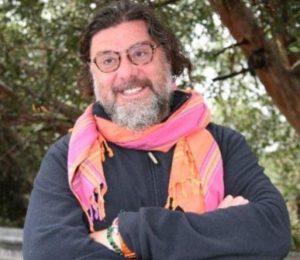
Event organisers must learn from previous failures and feats when preparing for future mass gatherings, international disaster expert Dr Maurizio Barbeschi says.
“All the preparations that go into planning for these situations should be transferred to future activities,” Dr Barbeschi, who is the team leader of Risk Assessment and Decision Support Systems at the World Health Organisation (WHO), says.
“Preparedness must have a legacy long after the event has finished.”
Dr Barbeschi has spent the past week in high-level talks with Flinders University Professor Paul Arbon, Head of the Flinders University Disaster Research Centre, on mass gathering management, preparedness and response.
A WHO Collaborating Centre, the Flinders University Disaster Research Centre is working in partnership with the WHO to develop better global guidelines and strategies to manage mass gatherings and deliberate events, including concerts, sports matches and disasters.
“The main aim of this collaboration is to build capacity in Australia and to develop solutions to potential public health problems arising from mass gatherings and deliberate events,” Dr Barbeschi, who provides strategic coordination of safety and security implications of activities linked to the United Nations Department of Global Capacity, Alert and Response activities, says.
“The fact that mass gatherings can be planned for means you can’t necessarily predict how the event is going to go – it’s not like a bushfire that happens every year because a bushfire you can be prepared for.
“At mass gatherings there are factors outside of your control, such attendance numbers, the weather and the mood of the crowd.
“But you can make preparations for security, communicable diseases, first aid, food, water and toilet facilities to mitigate the public health risks associated with mass gatherings.”
During his career, Dr Barbeschi worked as part of a United Nations team in Iraq searching for chemical and biological weapons during Saddam Hussein’s reign.
He has also been involved with the World Youth Day in Sydney, the Olympic Games in Athens, Torino, Beijing, Vancouver and London, and the 2010 FIFA World Cup in South Africa.
He says Australia is “one of the leading nations” in mass gatherings preparedness and response, and is delighted to work with Flinders to develop strategies to improve global cooperation.

